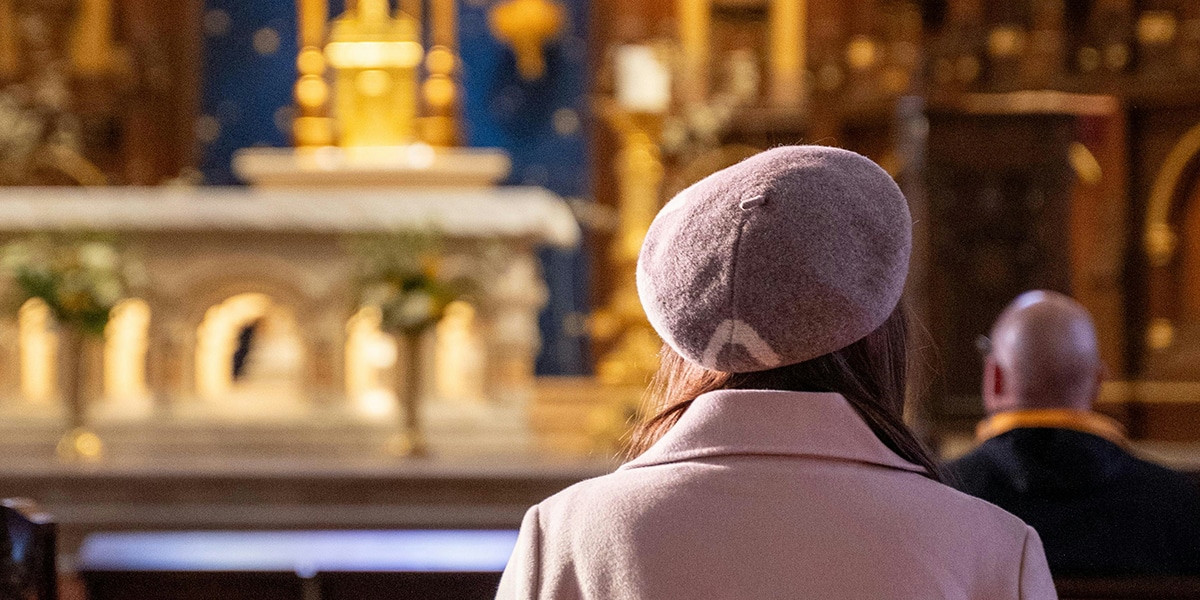For it was you who formed my inward parts you knit me together in my mother’s womb. I praise you, for I am fearfully and wonderfully made. Wonderful are your works that I know very well. My frame was not hidden from you, when I was being made in secret, intricately woven in the depths of the earth.
(Psalm 139:13–15)
My friends and family all know that I am an obsessive knitter. No matter where I am, if I have a few minutes to wait, I take out my knitting. It fills what might be empty moments with color, texture, and pattern. It keeps my hands busy so my mind is free to wander or focus as needed. There’s a meme going around among knitters that shows a nineteenth-century painting of a young girl knitting with the caption, “The original fidget-spinner.”
The first time I ever had to be admitted to the hospital for a bronchoscopy, my primary care doctor did the pre-admission tests and told me to go home and collect what I needed (I think his actual words were “whatever chargers you need”) and then check in at the hospital. I made sure I had my laptop to keep up with work and several knitting projects. I joked that if I’d known they would make me wear a hospital gown the whole time, I would have had room for another project instead of a change of clothes. If I had to be in the hospital, I might as well make good use of the time.
Last year, though, I was completely unprepared. When you go to the ER in a rescue squad, you don’t have the luxury of planning. I grabbed my phone and one simple scarf project. No iPad, no laptop, no work projects. The whole focus of my life for almost a week was breathing in and breathing out. That’s about as simple as it gets! As I began to feel better, I asked the hospital’s volunteer coordinator for some yarn to make something for their prayer shawl ministry. But even that was secondary to my main occupation of breathing in and breathing out, first with oxygen and then gradually on my own.

We fill our lives and our calendars with more than we can do in 24 hours and we do that for days on end. Reluctant to cross anything off, we simply push tasks to the next day and the next. Often we accumulate possessions with the same disregard for space and clarity. Many of us struggle with letting go of the things in our lives, often because those things hold memories of our past and of beloved friends and family. Advent calls us to simplify our lives and our homes so we can focus on what really matters: being aware of the Spirit of God breathing within and around us.
As we begin the second week of Advent this year, we hear the call of John the Baptist to turn our lives around, to let go of those things that keep us too far away from God’s presence. He preached a fierce and compelling message to people who had lost their way. But he also brought the message home to them in ways that spoke to the uniqueness of their way of life.
And the crowds asked him, “What then should we do?” In reply he said to them, “Whoever has two coats must share with anyone who has none; and whoever has food must do likewise.” Even tax-collectors came to be baptized, and they asked him, “Teacher, what should we do?” He said to them, “Collect no more than the amount prescribed for you.” Soldiers also asked him, “And we, what should we do?” He said to them, “Do not extort money from anyone by threats or false accusation, and be satisfied with your wages.”
We have a tendency to live “all-or-nothing” lives, especially when we’re trying to make changes and become better people. We swing from one extreme to the other and forget that temperance, too, is a virtue.







